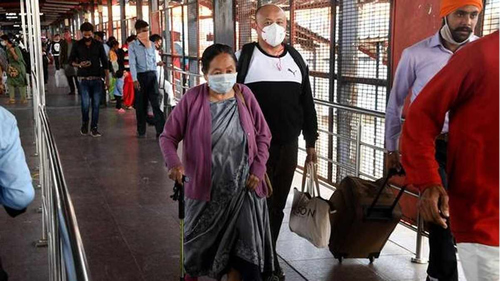India on Saturday overtook Italy to become the world’s sixth worst-hit country by the coronavirus, as it unveiled its biggest single-day surge of infections.
The Health Ministry reported 9,887 new cases over the past 24 hours, taking the total number of infections to 236,657.
Italy has 234,531 cases.
India’s confirmed cases have been rising sharply, by 8,000 or more, for several days now.
At least 294 deaths linked with COVID-19 were registered since Friday, bringing the total to 6,642.
India’s fatality rates, however, have been relatively low compared to countries worst-affected by the pandemic, including Italy.
The Asian country has only about one-fifth of Italy’s COVID-19 deaths that stand at 33,774.
Overall, India ranks 12th in fatalities.
According to the Health Ministry data, the count of recoveries had risen to over 114,000 cases.
Indian officials contend that the more than two month-long lockdown, the largest in the world, kept the mortality rates down.
They also cite effective clinical management and less severe infections in India, which has a population that skews younger.
They have denied allegations of under-reporting COVID-19-related deaths.
The case fatality ratio – or proportion of deaths to the total number of cases – has been steady at 2.8 per cent, which is lower than the global mortality rate of 5.8 per cent, the Hindustan Times daily reported.
However, experts warned that the densely populated country had yet to see the peak of the pandemic.
India’s main cities, the national capital New Delhi and financial hub of Mumbai, are the epicentres of the outbreak in India, accounting for 45,000 and 35,000 cases respectively.
People in these cities have taken to social media to talk about patients struggling to receive medical attention, with some hospitals contending they did not have enough beds left.
Delhi chief minister Arvind Kejriwal however said there was no shortage of beds and strict action would be taken against some hospitals that had turned away patients.
Many new cases were reported from rural areas after hundreds of thousands of daily-wage migrant workers left cities and towns under lockdown to return to their villages, having found themselves without work during the pandemic.
The restrictions are now being enforced in containment or high-risk zones, while marketplaces, businesses as well as industrial activity have been allowed to reopen and road, rail and air travel have resumed.
The government also announced new rules for re-opening of malls, restaurants, hotels and places of worship with restrictions on large gatherings from Monday


























